Chemical Controversies

Ugandan journalist: How do you report on crop biotechnology when critics spread misinformation?
Genetic engineering could help Uganda combat some of its toughest food security challenges. But anti-GMO activists' misinformation campaigns are standing ...

Dietitians challenge fears of ‘excessive chemicals’ in conventional foods
[Editor’s note: Mindy Hermann, MBA, RDN, is president of Hermann Communications in Somers, New York; Michael P. Holsapple, PhD, is ...

Syngenta CEO: Sustainability—not whether something is ‘organic’—should be food standard
[Syngenta chief executive Eryk Fyrwald] suggested neonicotinoid pesticides were not as dangerous as was being suggested. While France has confirmed ...
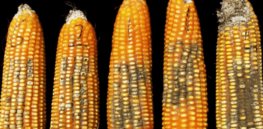
Did GMO connection prompt Gates Foundation to halt support for corn-aflatoxin breakthrough?
When Gates Foundation reviewers rejected a researcher's bid for new funding, one of the reasons cited was a concern over ...

Monsanto-Bayer merger now unlikely until 2018
German drugs and pesticides group Bayer said on Tuesday it was now likely to be early next year before it ...
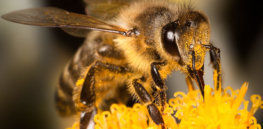
GMOs protect bees by reducing use of more toxic pesticides
[Editor’s note: Michelle Miller is the Farm Babe, an Iowa-based farmer, public speaker and writer, who lives and works with ...

Viewpoint: Mayo Clinic’s embarrassing embrace of ‘alternative’ and ‘complementary’ medicine now includes nutrition
[Editor's note: Kevin Klatt is a PhD candidate in nutritional sciences at Cornell University.] The prestigious Mayo Clinic regularly gets itself ...

Cornell’s Tony Shelton: Scientist behind GMO moth in activist crosshairs
[Cornell University Professor Tony Shelton] admits to being disappointed by the “misinformation” directed at his research to find a non-insecticidal ...
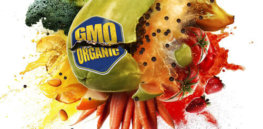
‘Food Evolution’ movie tackles ‘frankenfood’ myths by putting GMOs in global perspective
[Filmmaker Scott Hamilton Kennedy] and his fellow producer, Brooklynite Trace Sheehan, decided to delve into one issue: GMOs, or genetically ...

Canadian glyphosate opponents take aim at usage by local governments
In the last two weeks, the [Canadian] municipalities of Upper Miramichi, Moncton, and Petitcodiac have all started to question the ...
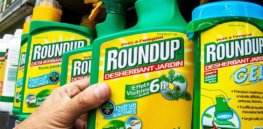
Will France’s rejection of glyphosate reauthorization block Europe’s proposed re-approval?
Major concerns now hang over the future use of glyphosate in the EU with the move by France not to ...
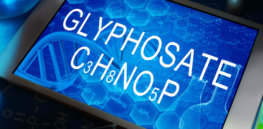
Ecologist: ‘Heavily scrutinized’ glyphosate not a ‘highly toxic chemical’
[Editor’s note: Frank Hassler is chief ecologist with Good Oak Ecological Services, which works to provide sustainable landscaping and land ...
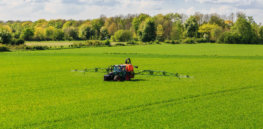
Glyphosate herbicide not an ‘endocrine disruptor’, European Food Safety Authority concludes
The European Food Safety Authority (EFSA) has concluded that the world's most used pesticide, glyphosate, does not have endocrine disrupting ...
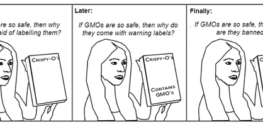
Viewpoint: Anti-GMO online series promotes fear and ‘less sustainable’ farming
Works like the recently released "GMOs Revealed" are making it more difficult for new agricultural techniques to gain widespread acceptance ...

How glyphosate-resistant weeds led to Monsanto’s dicamba herbicide crisis
[In] the 1990s, Monsanto began selling a series of patented, genetically modified, “RoundUp”-ready seeds. Monsanto had altered crop seeds...to be ...
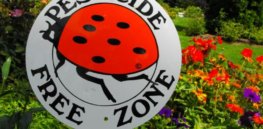
Viewpoint: Organic industry misleads consumers with fear, unethical sales tactics
[Editor’s note: Michelle Miller, the "Farm Babe", is an Iowa-based farmer, public speaker and writer.] While acting like the “little guy” ...
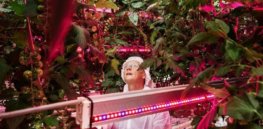
How the Netherlands became a high tech farming center
Almost two decades ago, the Dutch made a national commitment to sustainable agriculture under the rallying cry “Twice as much ...
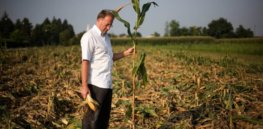
Italy’s GMO corn ban unlawful, European Union court rules
The European Union court ruled Wednesday (September 13] in favor of an Italian activist farmer who has defied his nation's ...
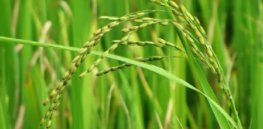
Non-patented, non-GMO herbicide resistant rice in development
A consortium of scientists led the Tamil Nadu Agricultural University (TNAU), Coimbatore has identified a novel mutant of rice which ...
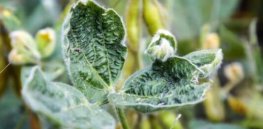
Record number of pesticide misuse claims by Iowa farmers due to dicamba drift problems
Nationally, 2,242 farmers say dicamba has damaged an estimated 3.1 million acres, a University of Missouri report shows. Iowa ag leaders ...
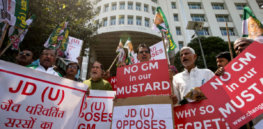
Indian scientists criticize misrepresentation of GM mustard by anti-GMO protesters
The National Academy of Agriculture Sciences on Wednesday torpedoed the arguments of the anti-GM lobby on the indigenous genetically modified ...
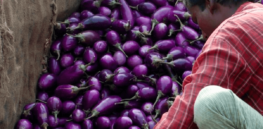
Video: How insect-resistant Bt GMO eggplant rescued Bangladesh’s staple crop
[Editor’s note: Pamela Ronald is plant pathologist and geneticist. She is a professor in the Genome Center and the Department ...

Trial to decide whether coffee must be labeled as a carcinogen in California
Starbucks and a host of other coffee sellers are fighting a lawsuit that alleges roasted coffee beans contain low levels ...
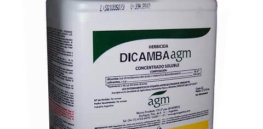
Monsanto pushes back against Arkansas’ proposed dicamba herbicide restrictions
Monsanto Co filed a petition on Thursday [September 7] asking Arkansas agricultural officials to reject a proposed date next year ...
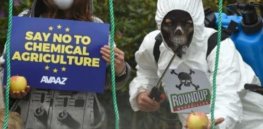
Viewpoint: Activists push glyphosate cancer scare as proxy to limit use of genetically engineered crops
Monsanto pediatrician and toxicologist Dan Goldstein: As the glyphosate-cancer debate has grown louder, it's become less scientific ...

Korean agricultural research agency stops GM crop commercialization after anti-GMO protests
The Rural Development Agency (RDA) released a statement on September 1 declaring its decision to halt its efforts to foster ...
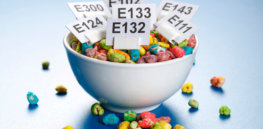
Viewpoint: 10 food additives that show ‘chemicals’ in our food are useful, not dangerous
Education and fear can’t go together, so let’s examine what some of the most common food additives are and what ...

